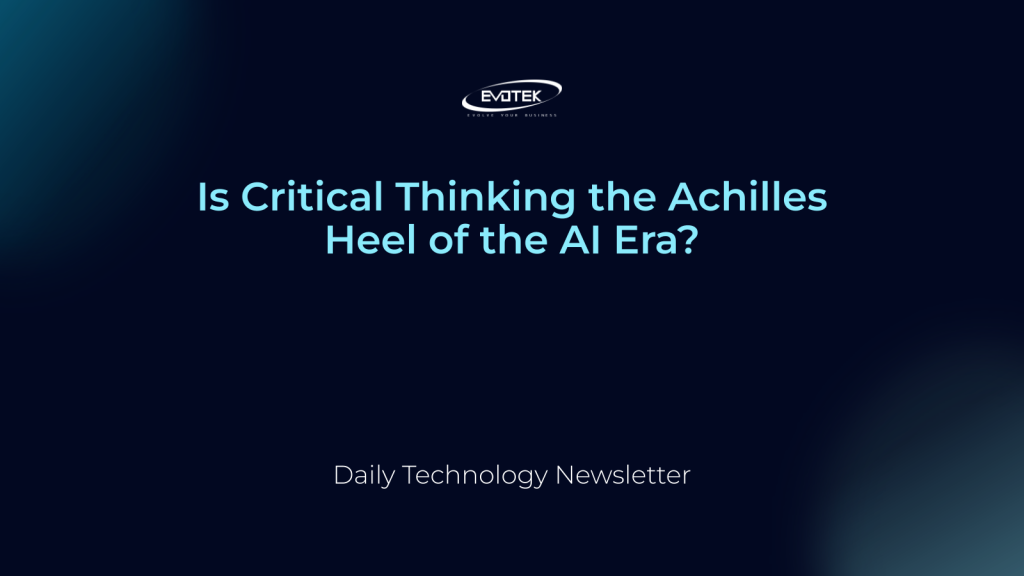A provocative argument is gaining traction: are we facing a future where the biggest obstacle to AI’s potential isn’t technological limitations, but a deficit in human critical thinking skills, particularly among younger generations? This isn’t about Luddites fearing robots stealing jobs. It’s a deeper concern about the ability of individuals to analyze information, discern truth from falsehood, and make independent judgments in a world increasingly shaped by algorithms.
The crux of the issue lies in the potential for over-reliance on AI tools. If young people become accustomed to outsourcing their thinking to algorithms – using AI to write essays, generate ideas, or even solve complex problems – will their own cognitive abilities atrophy? Will they lose the capacity for original thought, nuanced reasoning, and the healthy skepticism necessary to navigate a world saturated with information, much of which is deliberately misleading?
Concerns are being raised by educators and thought leaders alike. They emphasize that while AI offers incredible opportunities, it’s crucial to cultivate critical thinking skills alongside technological literacy. Simply knowing how to use AI is not enough. Students need to be able to evaluate the output of AI, identify biases, and understand the underlying logic (or lack thereof) behind its conclusions.
The challenge is not to reject AI, but to integrate it thoughtfully into education and daily life. This requires a renewed focus on teaching fundamental skills: logic, reasoning, media literacy, and the ability to construct well-supported arguments. Furthermore, it necessitates fostering a culture of intellectual curiosity and encouraging young people to question assumptions, challenge conventional wisdom, and think for themselves.
The future of AI depends not just on its technical capabilities, but on the intellectual capacity of the people who use it. By investing in critical thinking education, we can ensure that the next generation is equipped to harness the power of AI responsibly and ethically, rather than being diminished by it. The real threat isn’t AI itself, but a generation ill-equipped to think critically in an AI-driven world. This is a call to action: let’s prioritize critical thinking skills and empower young people to be active, informed, and discerning citizens of the AI era.
Key Takeaways:
- The lack of critical thinking skills in young people poses a significant threat to the responsible and effective use of AI.
- Over-reliance on AI tools can lead to cognitive atrophy and a diminished capacity for original thought.
- Educators and thought leaders are calling for a renewed focus on teaching critical thinking skills alongside technological literacy.
- Cultivating intellectual curiosity and encouraging questioning are essential for navigating an AI-saturated world.
- Investing in critical thinking education is crucial for ensuring that the next generation is equipped to harness the power of AI responsibly.
Learn more about critical thinking education.
#AI #CriticalThinking #Education #Technology #FutureofWork

 日本語
日本語 한국어
한국어 Tiếng Việt
Tiếng Việt 简体中文
简体中文